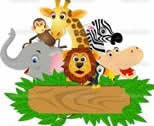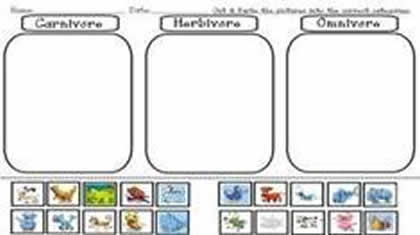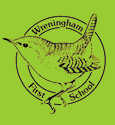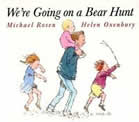Welcome to the KS1
Class 1 & 2 School Closure
Writing and Topic Activities
for week beginning 4th May
Project : Animals
If you wanr to skip to a particular type of task,
just click below:
3. Writng Tasks
4. Topic
Comprehension Task:
Click here for this week's comprehension about dogs. There are three levels - the stars at the bottom of the pages tells you the level.
 Reading Tasks
Reading Tasks
Can you read fiction, non- fiction
and poems about animals?
Can you find adjectives in the
books used to describe the animal?
Listen to the stories below :
2. Library Lion
- Create a bookmark with animal facts
Writing Tasks

A-Z Animal list:
Can you think of an animal for
each letter of the alphabet.?
- Draw a picture of your animal and label it. Can you write sentences using adjectives?
 Write a set of questions about animals you would like to find out about.
Write a set of questions about animals you would like to find out about.
- Create a fact file about your favourite animal.
- Research an animal of your choice and explore the
vocabulary required to describe them.
- Describe similarities and differences between
animals.
Topic Tasks

Find out about:
What are mammals?
What are amphibians?
What are birds?
What are fish?
What are reptiles?
What are minibeasts?

Task 1 - Create a mask:
Using different materials around the house,
create a mask of their favourite animal.

- Think about the colours and shape.
- Can you add different textures to your mask?
- Where does your animal live?
Play this sorting activity to develop your understanding of where different animals live.
Task 2 - Animal Grouping:
Get your child to group animals into two columns, identifying animals that can fly and cannot fly.
These groups are carnivores, herbivores and omnivores.

- Carnivores eat other animals.
- Herbivores eat plant material including fruit, leaves, vegetables.
- Omnivores eat a mixture of meat and plant material.
Task 3- Needs of an animal:
- Can all animals be kept as a pet?
- Think about a particular animal and find out if that
animal could be a pet. Draw pictures of different animals.
Click here for some Twinkl Sorting Cards
- Sort the animals into two groups; suitable for a pet
and not suitable for a pet.
- Explain why animals were sorted in a particular way.
Click Here for a link to some great quick animal
Task 4- Design a Leaflet:
- Design a leaflet explaining to potential pet owners what each animal will need.
Task 5- Animal Interviews:
- Interview a pet owner to discuss the responsibilities involved with looking after an animal.
- How often do they need to find their pet?
- Who helps clean?
- What does their pet eat?
Task 6- Peg Animals
- Find some pegs at home
- Can you create your own mini animal or object, cut it
half and stick it to a peg.
Task 7- Nocturnal Animals
Nocturnal animals - What do you think this word means?
Watch this BBC Bitesize link and discuss:
- the animals they saw.
- Have they seen these animals?
- How could they describe them?
Find out about bats, owls, foxes, hedgehogs and badgers through this ictgames link
Nocturnal animals are more active at night than during the day. These animals sleep during the day, often in a burrow or den. They have special adaptations that help them survive in the dark. Over millions of years, these animals have developed traits that help them survive in the darkness. Nocturnal animals may have larger ears to hear better, bigger eyes to see better, and body parts that glow in the night.
Task 8 - Nocturnal Animals Art:
Create your own big-eyed nocturnal animal art -
this link to greenkidscrafts.com shows you how with 6 nocturnal animal art projects to choose from.



